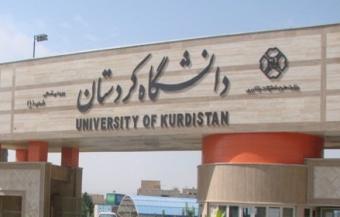Dark Spots on Rights to Education and UN

By Jamal Ekhtiar
Open editorial, September 3, 2014
The United Nations rights bodies carelessly mishandle the issues of social and cultural rights, education and students problems with their ‘selfish uproar’ rhetoric, but their long history of so-called human rights safeguarding in Iran has produced no tangible results.
The UN rights system seems to respect and advocate rights to safety and freedom for students and student activists inside the country, but ignore Iranian students living outside the country, including in the European zone, who have been pressured and deprived in recent years. The selective UN human rights system pays no attention to them, as though diaspora students are from another planet.
Right now many students are harshly pressured, in every area of their lives, by the effects of sanctions, but UN never discuss this. Complaints about this issue are available on the web. Students in foreign countries suffer the same problem and in some cases they have been forced to abandon their studies. There is also discrimination in place against refugee students in countries like Germany and Norway. Students have problems in transferring money and with the banking system. Families of students have been pressured economically and cannot pay for them due to the high inflation and fall in the Iranian currency due to sanctions. Students’ problems have been exploited by the UN which stays silent about how they and others have been damaged by the sanctions.
UN literature simply claims that a solution should be found to humanitarian problems to reduce the negative effects of sanctions, but these are just words on paper. The fall in living standards in Iran is part of the issue, but the UN simply blames the government of Iran. Citizens in Kurdistan-Iran report that many students in deprived areas abandon their studies due to economic problems. This problem has not been limited to the post-sanction period; central government has long imposed its never-ending discrimination against outspoken nationalities in Iran, including by not facilitating their education, during both pre- and post-sanction periods.
This article does not defend the dictatorial system in Iran at all, but rather it aims to realistically consider rights abuses and the United Nations’ dilemma. The fact is that the UN is a part of the problem, with its dysfunctional system for human rights including in the area of education. The United Nations, the Iranian system and some foreign players all share responsibility for the fall in living standards and the exclusion of many people from proper education.
In this area the UN rights system and the Special Rapporteur, Ahmed Shaheed, have a general view, while a deeper look is needed to understand the imbalances in education in different parts of the diverse society and the obstacles facing Iranian students outside the country.
The right to education in one’s mother tongue has been severely suppressed and denied in Balochestan, Kurdistan and for several other nationalities, despite the fact that it is approved in the never-implemented constitution.
The right to social and cultural development in Iran suffers severe imbalances due to centralization and lack of democracy. A citizen in Tehran has much greater freedom and opportunity for social development and enjoyment of his rights, while in Kurdistan or Balochestan, citizens are labelled enemies of national security if they launch cultural activities. The government acts selectively. Sometimes the government sponsors cultural activities to pretend to the world that different nationalities have rights and freedom, but it is an arranged show rather than a true exercise of rights.
Kurds and other nationalities, advocacy groups, organizations and exiled political parties have always voiced the demands of their people for education in their mother tongue, but the government of Iran unjustly accuses them of terrorism, although they have been victims of Iran’s cross-border state terrorism.
The United Nations rights system should pay further attention to decrease the negative effects of sanctions – preventing the government in Iran from using sanctions as an excuse – by imposing smart sanctions and pushing for the protection of the social and education rights of the Baloch, Kurds and others wrongly defined as minorities. Seventeen million Kurds, millions of Arabs in Ahwaz, millions of Baloch and other nationalities should not be simply overlooked as minorities.
Mr. Jamal Ekhtiar is a journalist from Iranian Kurdistan. He has been a writer and contributor to various English and Kurdish media over the past ten years. He also works with civil society organisations.
